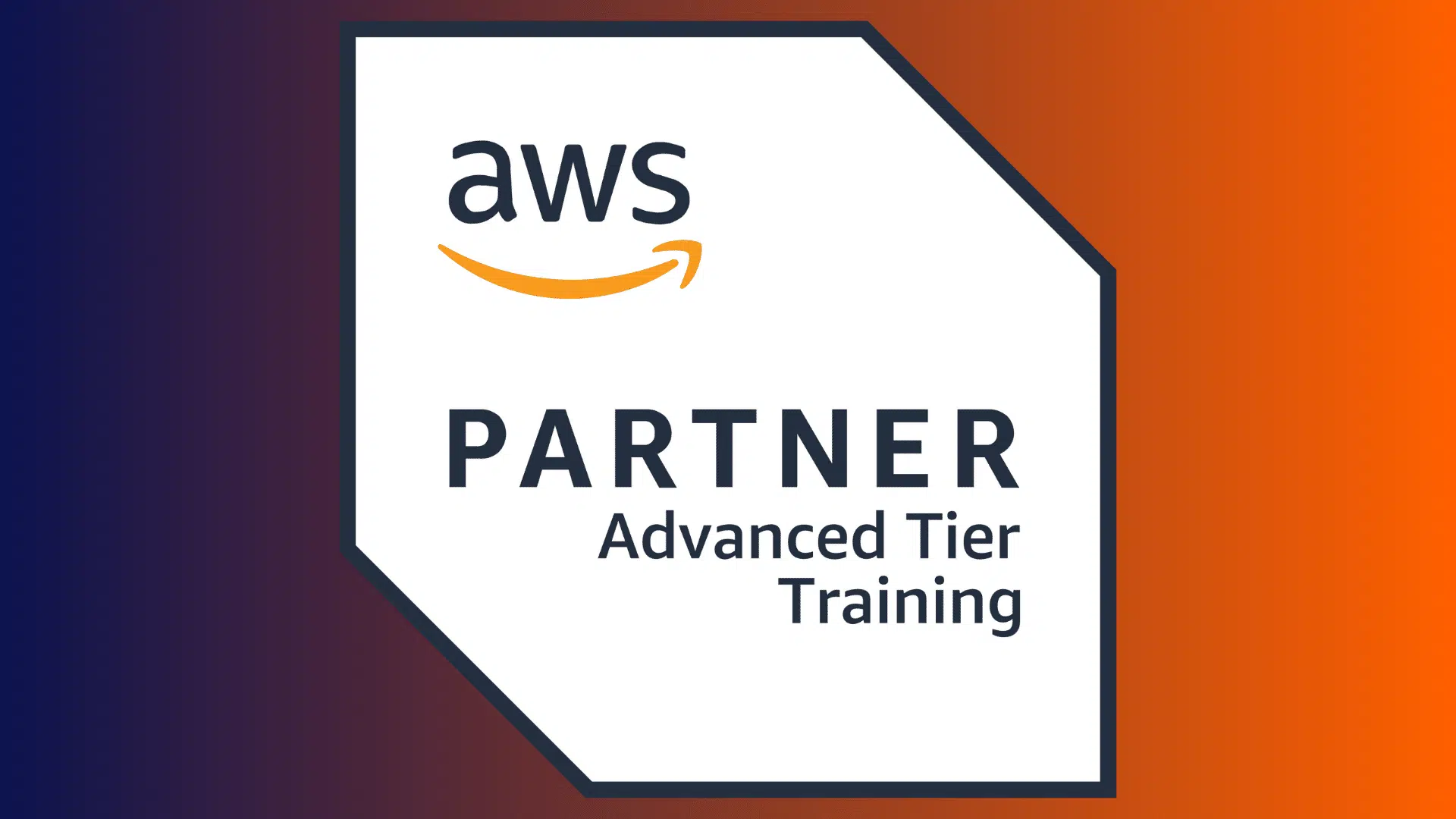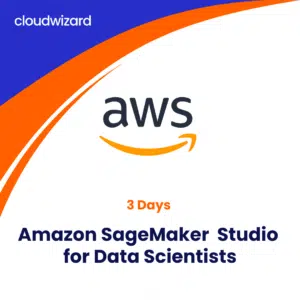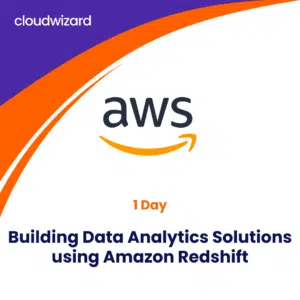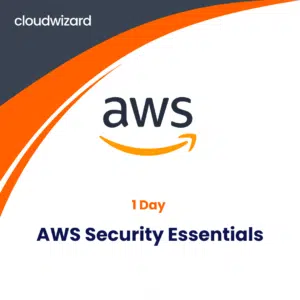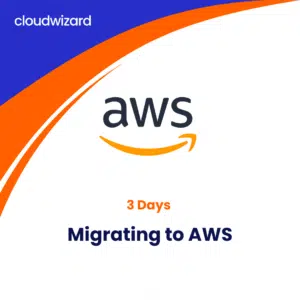Architecting on AWS
Additionally, you will explore AWS Services related to account security, networking, storage, databases, automation, containers, serverless architecture, backup and recovery.
This course is ideally meant for Solution Architects, Solution-Design engineers and developers who seek to understand AWS Architecture principles. You will also be able to prepare for the AWS Certified Solutions Architect – Associate exam after the completion of this three day course. The course is delivered by an Amazon Authorized Instructor with theory, real-life scenarios and hands-on labs
In this course, you will learn to:
- Identify AWS architecting basic practices
- Summarize the fundamentals of account security
- Identify strategies to build a secure virtual network that includes private and public subnets
- Practice building a multi-tier architecture in AWS
- Identify strategies to select the appropriate compute resources based on business use cases
- Compare and contrast AWS storage products and services based on business scenarios
- Compare and contrast AWS database services based on business needs
- Identify the role of monitoring, load balancing, and auto scaling responses based on business needs
- Identify and discuss AWS automation tools that will help you build, maintain, and evolve your infrastructure
- Discuss hybrid networking, network peering, and gateway and routing solutions to extend and secure your infrastructure
- Explore AWS container services for the rapid implementation of an infrastructure-agnostic, portable application environment
- Identify the business and security benefits of AWS serverless services based on business examples
- Discuss the ways in which AWS edge services address latency and security
- Explore AWS backup, recovery solutions, and best practices to ensure resiliency and business continuity
This course is intended for:
- Solution architects
- Solution-design engineers
- Developers seeking an understanding of AWS architecting
- Individuals seeking the AWS Solutions Architect-Associate certification
We recommend that attendees of this course have:
- Completed AWS Cloud Practitioner Essentials, or AWS Technical Essentials
- Working knowledge of distributed systems
- Familiarity with general networking concepts
- Familiarity with IP addressing
- Working knowledge of multi-tier architectures
- Familiarity with cloud computing concepts
Module 1: Architecting Fundamentals
- AWS services
- AWS infrastructure
- AWS Well-Architected Framework
- Hands-on lab: Explore and interact with the AWS Management Console and AWS Command Line Interface
Module 2: Account Security
- Principals and identities
- Security policies
- Managing multiple accounts
Module 3: Networking 1
- IP addressing
- VPC fundamentals
- VPC traffic security
Module 4: Compute
- Compute services
- EC2 instances
- Storage for EC2 instances
- Amazon EC2 pricing options
- AWS Lambda
- Hands-On Lab: Build your Amazon VPC infrastructure
Module 5: Storage
- Storage services
- Amazon S3
- Shared file systems
- Data migration tools
Module 6: Database Services
- Database services
- Amazon RDS
- Amazon DynamoDB
- Database caching
- Database migration tools
- Hands-on Lab: Create a database layer in your Amazon VPC infrastructure
Module 7: Monitoring and Scaling
- Monitoring
- Alarms and events
- Load balancing
- Auto scaling
- Hands-on Lab: Configure high availability in your Amazon VPC
Module 8: Automation
- AWS CloudFormation
- Infrastructure management
Module 9: Containers
- Microservices
- Containers
- Container services
Module 10: Networking 2
- VPC endpoints
- VPC peering
- Hybrid networking
- AWS Transit Gateway
Module 11: Serverless
- What is serverless?
- Amazon API Gateway
- Amazon SQS
- Amazon SNS
- Amazon Kinesis
- AWS Step Functions
- Hands-on Lab: Build a serverless architecture
Module 12: Edge Services
- Edge fundamentals
- Amazon Route 53
- Amazon CloudFront
- DDoS protection
- AWS Outposts
- Hands-On Lab: Configure an Amazon CloudFront distribution with an Amazon S3 origin
Module 13: Backup and Recovery
- Disaster planning
- AWS Backup
- Recovery strategies
- Hands-on Lab: Capstone lab – Build an AWS Multi-Tier architecture. Participants review the concepts and services learned in class and build a solution based on a scenario. The lab environment provides partial solutions to promote analysis and reflection. Participants deploy a highly available architecture. The instructor is available for consultation.
Why choose Cloud Wizard
- Advanced Tier Training Partner
- Amazon Authorised Instructors
- Official AWS Content
- Hands-on Labs
Class Deliverables
- E-Content kit by AWS
- Hands-on labs
- Class completion certificates
- Exam Prep sessions
Dates Available
Choose a date that works for you and click on Book Now to proceed with your registration.
| Method | Duration | Start Time | Start date | Price | Action |
|---|---|---|---|---|---|
| Classroom | 3 days | All Day | May 8, 2024 | ₹45,000 | |
| Classroom | 3 days | All Day | May 15, 2024 | ₹45,000 | |
| Classroom | 3 days | All Day | May 22, 2024 | ₹45,000 | |
| Classroom | 3 days | All Day | May 29, 2024 | ₹45,000 | |
| Classroom | 3 days | All Day | June 4, 2024 | ₹45,000 | |
| Classroom | 3 days | All Day | June 11, 2024 | ₹45,000 | |
| Classroom | 3 days | All Day | June 18, 2024 | ₹45,000 | |
| Classroom | 3 days | All Day | June 25, 2024 | ₹45,000 |
Don't see a date that works for you?
Fill in the form below to let us know.
Related courses
Related products
-
AWS Training
Amazon SageMaker Studio for Data Scientists
This course empowers data scientists to swiftly prepare, build, train, deploy, and monitor machine learning (ML) models. Seasoned data scientists can benefit from the course by gaining skills to master SageMaker Studio tools, including Amazon CodeWhisperer and Amazon CodeGuru Security scan extensions, enhancing productivity across the ML lifecycle.
We recommend that all students complete the AWS Technical Essentials course before enrolling in this program. Additionally, those without prior experience in data science should complete The Machine Learning Pipeline on AWS and Deep Learning on AWS courses, followed by gaining 1-year on-the-job experience.
-
AWS Training
Building Data Analytics Solutions Using Amazon Redshift
In this course, you will build a data analytics solution using Amazon Redshift, a cloud data warehouse service. The course focuses on the data collection, ingestion, cataloging, storage, and processing components of the analytics pipeline. You will learn to integrate Amazon Redshift with a data lake to support both analytics and machine learning workloads.
You will also learn to apply security, performance, and cost management best practices to the operation of Amazon Redshift.
-
AWS Training
AWS Security Essentials
This fundamental course covers basic security concepts of the AWS Cloud including AWS access control, methods of data encryption and securing network access to your AWS infrastructure. You will learn to implement security in the AWS Cloud using the AWS shared responsibility model and check for the available security-related services. You will also learn how the AWS security services help secure the needs of an organization.
This course is intended for Security professionals who are interested in cloud security practices, regardless of prior experience on AWS Cloud. You will benefit with some working knowledge of IT security practices and infrastructure concepts. The one-day-long course is delivered by an experienced AWS Instructor with presentations and hands-on labs.
-
AWS Training
Migrating to AWS
This course is designed for aspirants willing to learn how to plan and migrate the existing workloads to the AWS Cloud. You will understand how different cloud migration strategies can apply to each step of the migration process such as Portfolio discovery, application migrating planning, conducting a migration to the cloud and optimizing the application.
Other learning areas in the course include common business and technical drivers for migrating to the cloud. You will learn to determine if an organization is ready to migrate, and distinguish between various cloud migration strategies.
This three day course is intended for Solution Architects, Software Engineers, IT project managers and other leads who may be involved in the execution of cloud migration projects. It includes theory and practical exercises with demonstrations, assessments and group tasks

